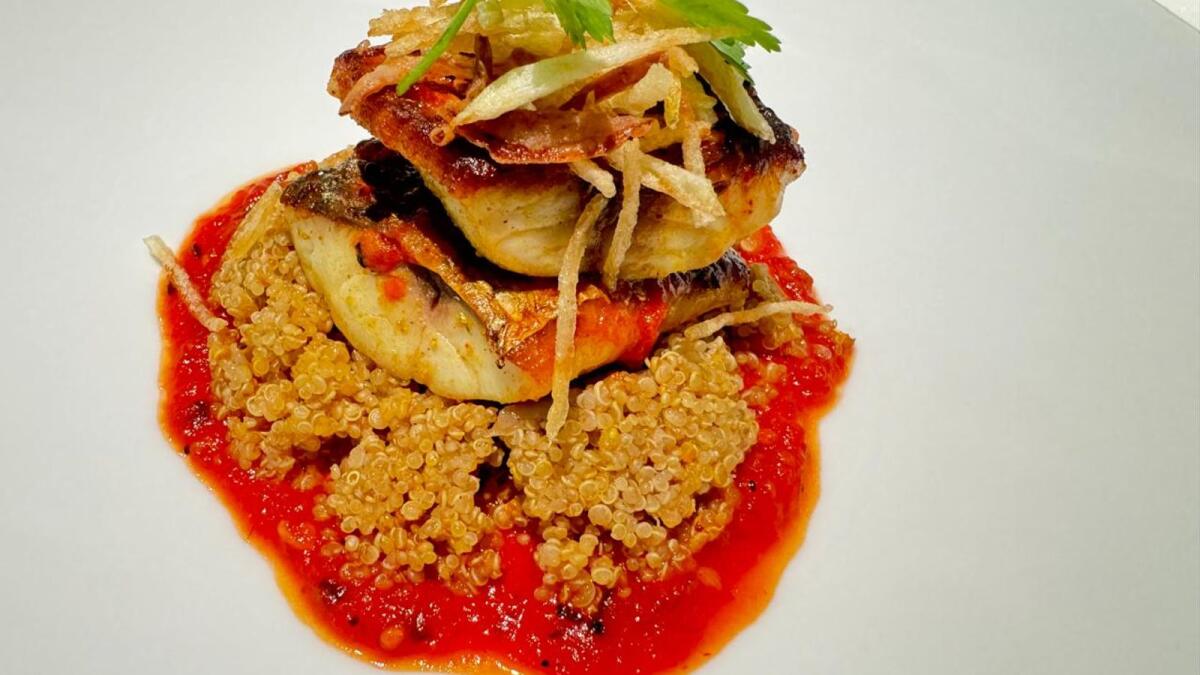Food is a fundamental aspect of human life, and the way we approach food can have a significant impact on our health, the environment, and our outlook towards sustainability. A recent Food Innovation conference brought together more than 150 international experts to discuss and explore innovative solutions in the field of food. The conference kicked off with a unique dinner experience that challenged the participants to reimagine classic dishes by incorporating alternative ingredients.
One of the standout dishes of the evening was the fish biryani made from quinoa instead of rice. Quinoa, a nutrient-rich seed often dubbed as a superfood, was used as a substitute for the traditional rice in the biryani. Asma Khan, the brains behind this innovative dish and a World Food Programme Chef Advocate, highlighted the importance of diversifying our food choices and exploring alternative grains like quinoa and millets. By making simple changes in our diet, we can make a significant impact on the food system and promote sustainability.
The shift from traditional food practices to innovative approaches can lead to reduced environmental impact and enhanced nutritional benefits. For example, replacing rice with quinoa in a dish like biryani can greatly conserve water resources, as quinoa requires much less water to grow compared to rice. This shift towards more resilient and nutritious ingredients can pave the way for a healthier and more sustainable food future. Embracing such changes allows us to reimagine our culinary experiences and make conscious choices in our dietary preferences.
In addition to the fish biryani made from quinoa, the dinner menu featured other creative dishes that challenged the norms of traditional cuisine. One such dish was the carrot tartare, a vegan twist on the classic French beef tartare. By replicating the preparation techniques of a traditional meat tartare, the chef showcased how plant-based alternatives can be just as flavorful and satisfying. The innovative menu not only delighted the taste buds of the guests but also sparked conversations around sustainable food production and consumption.
The evening’s culinary offerings extended beyond just innovative recipes; they also highlighted the importance of sustainable food practices. From locally sourced ingredients to dishes that minimize waste and promote eco-friendly cooking methods, every aspect of the dinner menu reflected a commitment to sustainable food production. By incorporating elements of sustainability into our dining experiences, we can contribute to a greener and more responsible food culture that prioritizes the well-being of the planet and future generations.
The Food Innovation conference serves as a platform for experts to come together and discuss pressing issues in the food industry, from water scarcity to sustainable farming practices. Tatiana Malvasio, the co-founder of Kilimo, a water marketplace in Latin America, is one of the attendees at the conference looking to exchange ideas and learn from the UAE’s agricultural practices. With a focus on water conservation and sustainable farming, experts like Tatiana are exploring ways to address the challenges facing the food system and pave the way for a more resilient and environmentally conscious future.
As the conference continues to unfold, the discussions around food innovation and sustainability are expected to inspire new ideas, collaborations, and initiatives that will shape the future of food. By embracing alternative ingredients, exploring innovative cooking techniques, and prioritizing sustainability in our food choices, we can contribute to a more vibrant and sustainable food landscape. The journey towards reimagining classic dishes like biryani without rice or creating vegan versions of traditional recipes opens up a world of possibilities for culinary creativity and environmental stewardship. Let’s continue to push the boundaries of food innovation and embrace a more sustainable approach to eating for the well-being of ourselves and the planet.





















